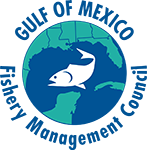The Gulf of Mexico Fishery Management Council is composed of
the five Gulf State Marine Resource Directors, the Regional Administrator of
NOAA Fisheries, and 11 members of the public who have experience and expertise
in the fishery. The Council recently welcomed Dr. Greg Stunz back to the
Council for his second term and inducted new member Phil Dyskow and retuning
member Dr. Bob Shipp.
the five Gulf State Marine Resource Directors, the Regional Administrator of
NOAA Fisheries, and 11 members of the public who have experience and expertise
in the fishery. The Council recently welcomed Dr. Greg Stunz back to the
Council for his second term and inducted new member Phil Dyskow and retuning
member Dr. Bob Shipp.
Phil Dyskow
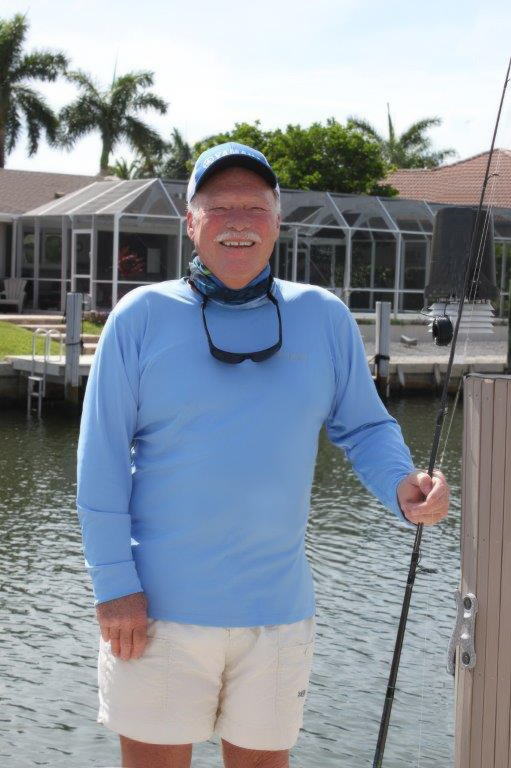 Phil Dyskow, the former president of Yam
Phil Dyskow, the former president of Yama life-long recreational angler with experience in both inshore and offshore
waters of the Gulf of Mexico. He’s no stranger to advising the Federal
Government on marine issues. He’s served two appointments on both the Marine
Fisheries Advisory Committee, the group responsible for advising the Secretary
of Commerce on all living marine resource matters, and the National Boating
Safety Advisory Council under the Secretary of Homeland Security. Mr. Dyskow
has also received numerous honors and awards related to his professional
prowess in the marine industry and his conservation service. He was inducted
into the Marine Industry Hall of Fame and had been named the 2015 CCC
Manufacturer “Man” of the Year. He’s received the Kenai River Guardia Award and
served as a board member for the Kenai River Sport Fishing Association, a
nonprofit dedicated to ensuring the sustainability of the Kenai River in
Alaska. He’s also been named an Honorary Legacy Life Member of the Coastal
Conservation Association, a group focused on the conservation of marine
resources to ensure future availability of those resources for the benefit and
enjoyment of the general public.
Phil comes from a long line of boaters and waterman. He learned to fish from his grandfather who
lived to be over 100 and fished and rowed his own boat into his late 90’s. His father was also an avid hunter, fisherman
and boater. Phil began recreational
fishing at age 5 and it turned into a lifelong focus both as a pastime and as a
career. He has worked in the fishing
tackle, boat and marine engine industries his entire adult life. Phil says, “as
my career developed, I began to understand the importance of preserving and
protecting our precious marine resources for future generations to use and
enjoy. Being active in managing our Gulf
resources is a way to pay back for an industry that has been very good to me.”
lived to be over 100 and fished and rowed his own boat into his late 90’s. His father was also an avid hunter, fisherman
and boater. Phil began recreational
fishing at age 5 and it turned into a lifelong focus both as a pastime and as a
career. He has worked in the fishing
tackle, boat and marine engine industries his entire adult life. Phil says, “as
my career developed, I began to understand the importance of preserving and
protecting our precious marine resources for future generations to use and
enjoy. Being active in managing our Gulf
resources is a way to pay back for an industry that has been very good to me.”
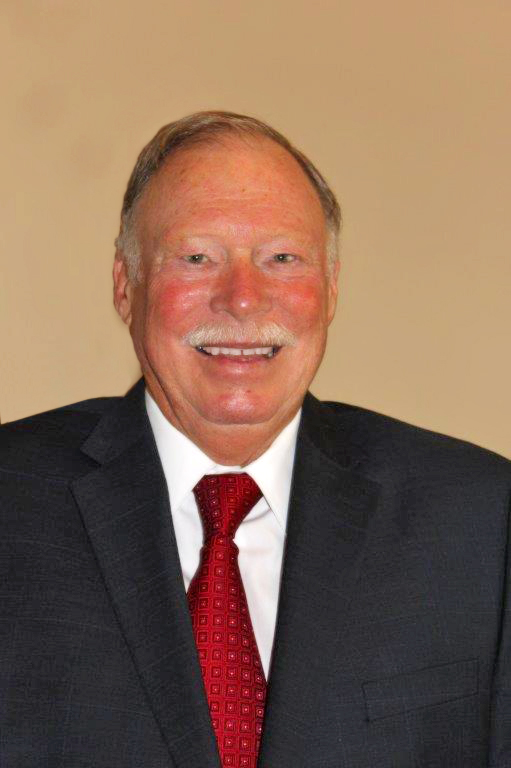 Mr. Dyskow answered the following questions to provide more
Mr. Dyskow answered the following questions to provide moreinsight on his perspective on the fishery:
What
is the most important issue in our fishery right now?
is the most important issue in our fishery right now?
“I believe that the most
important issue we face is the need to create a better balance of regulation
and policy that meets the needs of the broad group of stakeholders we
represent.”
important issue we face is the need to create a better balance of regulation
and policy that meets the needs of the broad group of stakeholders we
represent.”
What
can the Gulf Council do to improve management?
can the Gulf Council do to improve management?
“The best thing we can do
to improve management is to look beyond our own personal focus to embrace the
ideas of others.”
to improve management is to look beyond our own personal focus to embrace the
ideas of others.”
Do
you have a favorite fishing story to share?
you have a favorite fishing story to share?
“I really don’t have a
favorite fishing story. All of the time I spend on the Gulf is special to
me, especially the time just before dawn when a new day is beginning.”
favorite fishing story. All of the time I spend on the Gulf is special to
me, especially the time just before dawn when a new day is beginning.”
Bob Shipp
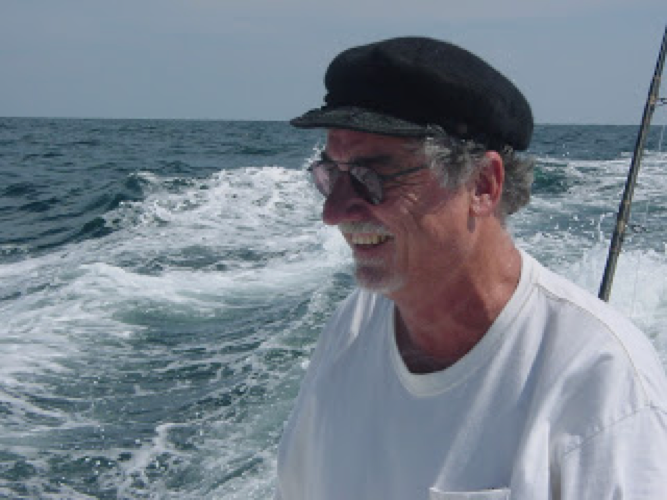 Dr.
Dr.Bob Shipp is one of the most well-known fisheries scientists across the Gulf
coast. He has spent his life researching and appreciating the fish of the Gulf
of Mexico. His passion for the ocean was ignited at the early age of 4 by his
grandfather with whom he enjoyed countless hours of surf fishing from the
shores of Fort Walton Beach, Florida. As he grew a bit older he and his cousins
spent summers snorkeling jetties and piers collecting fish and invertebrates for
aquariums. Eventually, Bob got into SCUBA diving when it was first becoming a
recreational activity.
During
his childhood Dr. Shipp moved to New Orleans, Louisiana where he began his
academic pursuit of fisheries. He focused on marine biology as much as he
could, making it the topic of every school project possible. Dr. Shipp explains
“My friends from those days joke with me now for being the only one of the
group that followed through with my harebrained teenage career dreams.”
his childhood Dr. Shipp moved to New Orleans, Louisiana where he began his
academic pursuit of fisheries. He focused on marine biology as much as he
could, making it the topic of every school project possible. Dr. Shipp explains
“My friends from those days joke with me now for being the only one of the
group that followed through with my harebrained teenage career dreams.”
After
graduating from Spring Hill College, Dr. Shipp attended Florida State
University where he earned his master’s degree and PhD. Shortly thereafter he
began working for the University of South Alabama teaching anatomy and
physiology. He quickly moved into a fisheries biology position where his career
flourished. He chaired the biology department and served as the acting director
at the Sea Lab on Dauphin Island. He recently retired after serving 20 years as
the chairman of the Department of Marine Sciences.
graduating from Spring Hill College, Dr. Shipp attended Florida State
University where he earned his master’s degree and PhD. Shortly thereafter he
began working for the University of South Alabama teaching anatomy and
physiology. He quickly moved into a fisheries biology position where his career
flourished. He chaired the biology department and served as the acting director
at the Sea Lab on Dauphin Island. He recently retired after serving 20 years as
the chairman of the Department of Marine Sciences.
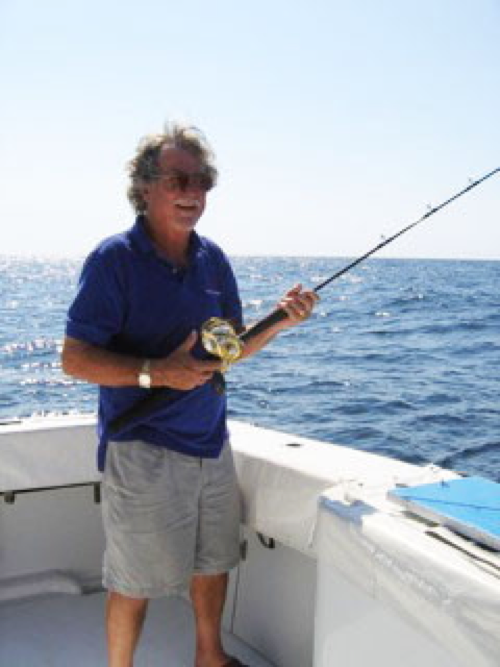 In
Inaddition to his work with the university, Dr. Shipp served for 12 years as the
Director for the Alabama chapter of the Coastal Conservation Association. He
has also been a judge for the Alabama Deep Sea Fishing Rodeo since 1982. He
authors articles for multiple magazines and scientific papers, and he published
“Dr. Bob Shipp’s Guide
to Fishes of the Gulf of Mexico.”
Dr.
Bob Shipp answered a few questions to give us some insight on his perspective
of our Gulf fishery.
Bob Shipp answered a few questions to give us some insight on his perspective
of our Gulf fishery.
What
is the most important issue in our fishery right now?
is the most important issue in our fishery right now?
“I’m
concerned that federal fishery law (the Magnuson-Stevens Act) prevents the
Council from trying innovative fishery management techniques. Requiring species
to be managed using quotas prevents the use of tools like Marine Protected
Areas to manage our fish. Our hands are tied by the Act and it shows – the red
snapper stock is healthier than it’s ever been, and we still have shorter and
shorter fishing seasons – we obviously need the freedom to try something different.”
concerned that federal fishery law (the Magnuson-Stevens Act) prevents the
Council from trying innovative fishery management techniques. Requiring species
to be managed using quotas prevents the use of tools like Marine Protected
Areas to manage our fish. Our hands are tied by the Act and it shows – the red
snapper stock is healthier than it’s ever been, and we still have shorter and
shorter fishing seasons – we obviously need the freedom to try something different.”
What
can the Gulf Council do to improve management?
can the Gulf Council do to improve management?
“The
Council’s options are very few. Under the current system we can only tweak
things rather than solve problems. The idea of Regional Management, for
example, still only allows the Council to change some minor management measures
like seasons and bag limits, while the major problems still remain.”
Council’s options are very few. Under the current system we can only tweak
things rather than solve problems. The idea of Regional Management, for
example, still only allows the Council to change some minor management measures
like seasons and bag limits, while the major problems still remain.”
Do
you have a favorite fishing story to share?
you have a favorite fishing story to share?
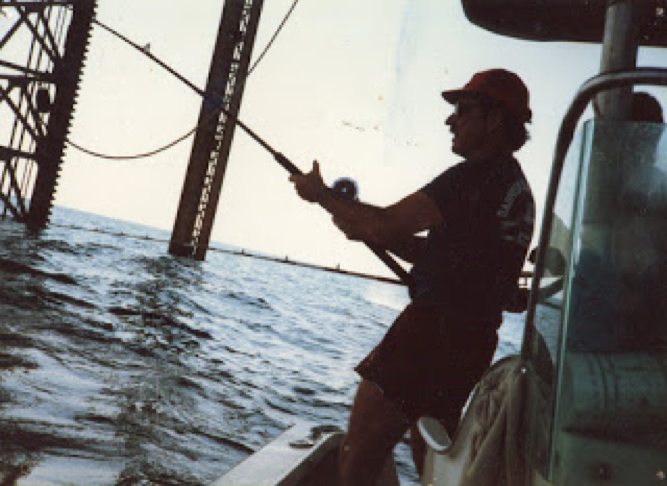 “I
“Ihave a group of close friends that I went to high school with who wanted to
experience some yellowfin tuna fishing. They are mostly freshwater fishermen
and had not had the opportunity to spend much time off-shore. We all got
together for a weekend after 41 years apart, and spent the day 100 miles out
catching yellowfin. I had so much fun watching them experience such an amazing
day on the water. We used kite baits, and at one point the tuna were leaping 8
feet out of the water. The excitement really transported us all back to our
giddy 15-year-old selves again, and for that reason we now make the trip an
annual event. It’s always one of my favorite outings of the year.”
